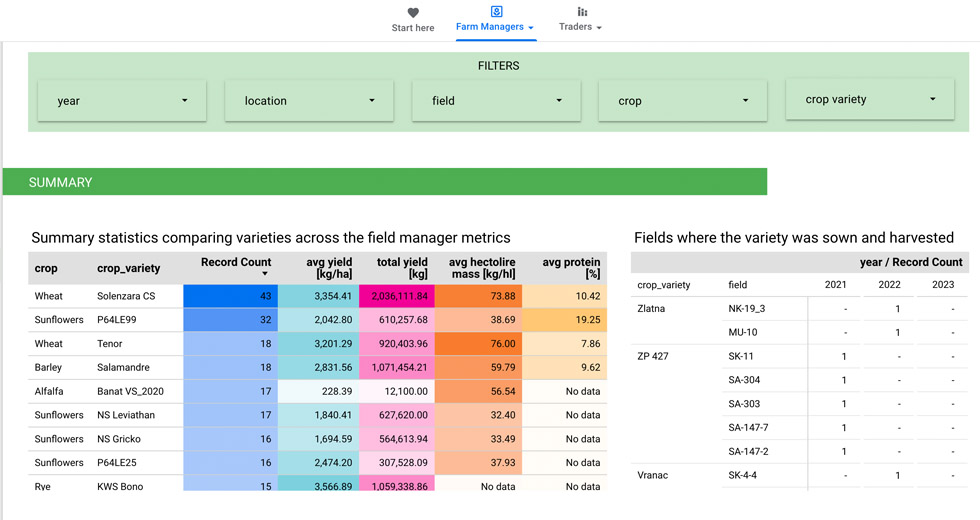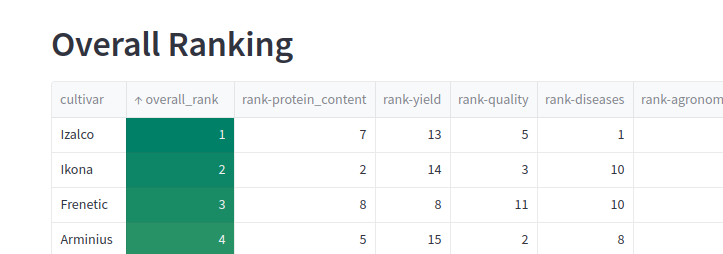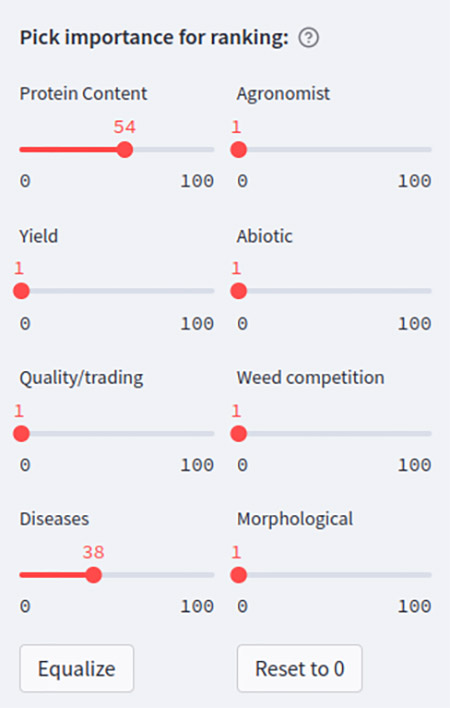Njamito Goes Fairtrade for Cocoa and Vanilla
March 31, 2025Njamito is now Fairtrade certified for cocoa and vanilla! Here’s what that means for farmers, the planet, and the values behind our meal-in-a-bottle.
Read articleThe statistical tool that helps you find the best crop variety to sow in the next season.

The statistical tool that helps you find the best crop variety to sow in the next season.
In the world of ecological agriculture, selecting the right crop is like finding a needle in a haystack. Take wheat, for example; among thousands of genotypes, only a small number of them are well-suited to organic conditions.
To solve this problem, we conduct screening trials, growing and comparing various cultivars head-to-head. These trials are essential but generate vast amounts of data across 50+ metrics, such as yield, protein content, and disease resistance, making the selection process overwhelming.
The Crop Analysis Tool helped us accelerate our internal screening process and identify two wheat varieties (Ikona and Izalco) with high protein content and high disease resistance that thrive in ecological conditions. We also used the tool to find a new high-protein and high-yield pea variety (Flokon) to improve our production outputs.
In a nutshell, with our Crop Analysis Tool, we quickly gained insights into which genotypes we should cultivate on our large-scale fields. After selecting the best-performing cultivars, we extended our research to these fields and analyzed the results.
Our Crop Analysis Tool acts as a statistical compass, guiding us through the data jungle. This decision-support tool is both precise and adaptable, enabling agronomists and farm managers to customize data analysis to their needs.
They can select the year, location, crop, and specific varieties to obtain detailed information on yield, protein content, fat percentage, and hectoliter mass. Reliable data is crucial for informed decision-making.
For instance, analyzing different wheat cultivars revealed that Ikona and Izalco outperformed other commonly sown varieties in our region, in terms of protein content and yield.
In essence, our tool ranks crops from best to worst, streamlining the selection process.
Farm managers can easily analyze crop performance over the years using metrics of their choice. For example, our analysis of wheat over several years highlighted average yield trends.

Additionally, our tool enables us to weigh the importance of each metric, to ensure that decision-making aligns with on-the-ground needs and priorities. For example, an agronomist facing Yellow Stripe Rust Disease can use the tool’s control panel to put more weight on disease resistance when selecting the best cultivar. A farm manager who struggles to sell peas due to low protein content can tune up the metric, to select high-protein varieties.

Traders also benefit by analyzing crops based on metrics crucial for wholesale, such as protein content.
Crop Analysis Tool offers numerous benefits:
Looking ahead, our goal is to integrate this tool into our Farming Software, which we plan to share freely with other farmers once it has proven effective.
Njamito is now Fairtrade certified for cocoa and vanilla! Here’s what that means for farmers, the planet, and the values behind our meal-in-a-bottle.
Read articleIdealism met reality as we launched our meal-in-a-bottle, Njamito. After 100.000 bottles sold, here’s what we learned about organic food and market adaptation.
Read articleWith organic seeds in short supply, we launched our own organic seed production journey to secure sustainable farming practices.
Read article